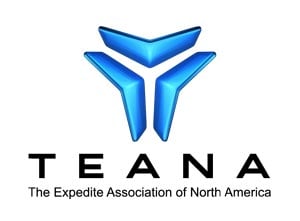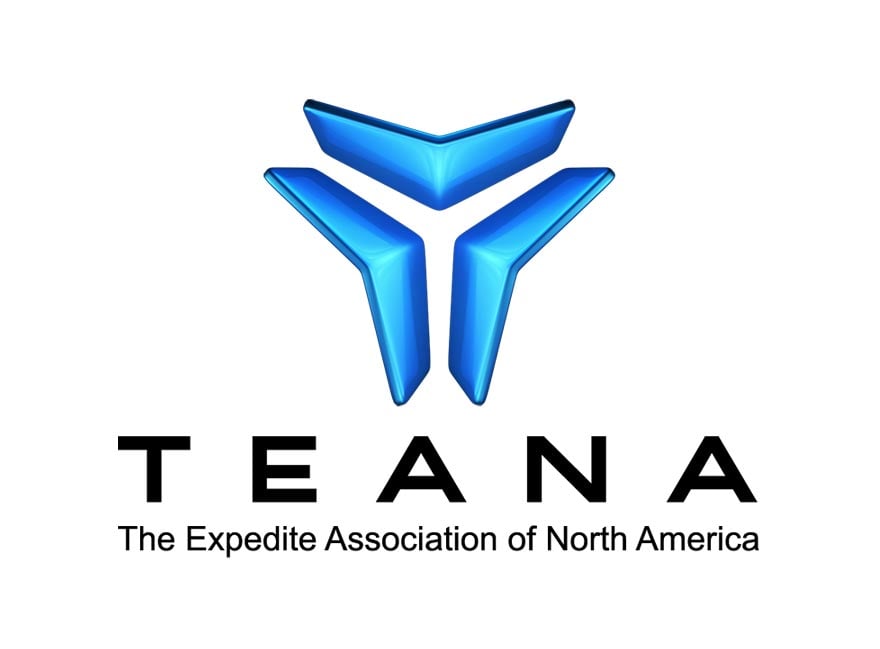September 16, 2022 | BY Hank Seaton
Regulatory and Legislative Update - September 2022
Share this article

Contents
FMCSA has extended its emergency declaration regarding COVID-19 through October 15, 2022. For the latest version and other guidance related to COVID-19 is available at www.fmcsa.dot.gov/COVID-19. Note that use of the declaration now requires monthly reporting by carriers.
Regulation and Enforcement
- NLRB proposes joint-employer rule to undo Trump-era rule
- Trucking Alliance seeks exemption for including hair testing results in clearinghouse
- FMCSA seeks comments on use and benefits of COVID enforcement relief
- ELDorado ELD removed from list of registered ELDs
- FMCSA names members of Women in Trucking Advisory Board
- Community colleges receive funds to train veterans as truck drivers
- Small carrier seeks HOS exemption to deliver dry and bulk food grade products
- FMCSA reaffirms denial of driver training exemption for UPS
- ELD exemption renewed for short-term truck rentals
Courts
Advocacy and Comment
Regulation and Enforcement
NLRB proposes joint-employer rule to undo Trump-era rule
The National Labor Relations Board has issued a notice of proposed rulemaking that would make it easier for workers to claim joint employment, reversing a February 2020 rule that made it more difficult for workers to make such a claim. The current rule states that employees could only claim to be employed by companies holding “substantial, direct and immediate control” over their employment. The proposal would loosen that standard to include employers that exercised such control over essential terms and conditions “directly or indirectly.”
Under the proposed rule, two or more employers would be considered joint employers if they “share or codetermine those matters governing employees’ essential terms and conditions of employment,” such as wages, benefits and other compensation, work and scheduling, hiring and discharge, discipline, workplace health and safety, supervision, assignment, and work rules. The NLRB proposal, therefore, would make it easier for employees of contractors or staffing firms. In announcing the proposal, NLRB said the proposal would ground the joint-employer standard in established common-law agency principles consistent with board precedent and guidance from the U.S. Court of Appeals for the District of Columbia Circuit. The proposal was advanced by a 3-2 vote of the board.
Comments on the NLRB proposal are due November 7. For the Federal Register notice, visit https://www.federalregister.gov/d/2022-19181. Comments replying to comments submitted during the initial comment period must be received by the Board on or before November 21.
Trucking Alliance seeks exemption for including hair testing results in clearinghouse
FMCSA is requesting comments by September 23 on an application from The Trucking Alliance – a group representing 11 mostly large trucking companies – for an exemption to amend the definition of actual knowledge of drug us to include the employer’s knowledge of a driver’s positive hair test. Because the Department of Health and Human Services has yet to clear hair testing as an alternative to urine testing, hair test results cannot be reported to the drug and alcohol clearinghouse. In the Federal Register notice, FMCSA declared that it lacks statutory authority to grant the Trucking Alliance’s requested exemption until HHS amends its mandatory guidelines, but the agency said it is requesting public comment on the application as required by statute. For the Federal Register notice, visit https://www.federalregister.gov/d/2022-18257.
FMCSA seeks comments on use and benefits of COVID enforcement relief
FMCSA is seeking comments by September 21 on the extent to which motor carriers currently rely on the COVID-19 emergency declaration and whether there has been any impact on safety. The agency has extended the emergency declaration through October 15, but it has signaled that it is at least questioning whether the declaration is still necessary.
Last September, FMCSA has asked carriers to report on the number of trips conducted under the declaration and the commodities transported. Based on a review of the carriers’ self-reported information, the primary categories transported are (1) food, paper, and other groceries for emergency restocking of distribution centers or stores; and (2) livestock and livestock feed. Meanwhile, two categories that have seen usage drop by almost 50% between October 2021 and July 2022 were (1) medical supplies and equipment related to the testing, diagnosis, and treatment of COVID-19; and (2) supplies and equipment necessary for community safety, sanitation, and prevention of community transmission of COVID-19. For the Federal Register notice, visit https://www.federalregister.gov/d/2022-19304.
ELDorado ELD removed from list of registered ELDs
FMCSA has removed ELDorado ELD from the list of registered electronic logging devices (ELD) and placed it on the revoked devices list do to the company’s failure to meet the minimum requirements. The revocation is effective September 7. Carriers most immediately discontinue using the ElDorado ELD and revert to paper logs or logging software to record hours of service and must replace the device with a compliant ELD by November 7. The list of registered devices is available at https://eld.fmcsa.dot.gov/List.
FMCSA names members of Women of Trucking Advisory Board
FMCSA in late August announced the appointment of members to the Women of Trucking Advisory Board (WOTAB), which was established by last year's infrastructure package to encourage the recruitment, retention, support, and safety of female commercial motor vehicle (CMV) drivers. The WOTAB will provide recommendations to FMCSA. For the list of WOTAB members, visit https://www.fmcsa.dot.gov/advisory-committees/wotab/wotab-members.
Community colleges receive funds to train veterans as truck drivers
FMCSA has awarded $3.1 million to community colleges and training institutes through the Commercial Motor Vehicle Operator Safety Training (CMVOST) grant program. Grants will assist current and former members of the Armed Forces who want to pursue careers in trucking to get commercial driver’s licenses (CDLs) and the training they need to enter the profession. Changes to the program in fiscal 2022 allowed educational institutions to apply for funds without providing a local match. For a list of colleges receiving grants, visit https://www.fmcsa.dot.gov/mission/grants/cmvost-grant-recommendation-summaries.
Small carrier seeks HOS exemption to deliver dry and bulk food grade products
FMCSA is requesting comments by October 3 on an application from Flat Top Transport LLC, a nine-truck carrier based in Holland, Michigan, for a four-month exemption from the hours-of-service regulations for “immediate and emergency delivery of dry and bulk food grade products to locations that supply stores and distribution centers nationally.” The carrier said that its main focus would be food-grade flour, corn meal, and salts used for the production of cereals, baked goods, canned goods, and meat processing. It said tight availability of those products is threatening food chain supply and producing shutdowns. For the Federal Register notice, visit https://www.federalregister.gov/d/2022-18935.
FMCSA reaffirms denial of driver training exemption for UPS
FMCSA on reconsideration has again denied an application by United Parcel Service for an exemption from a provision in the entry-level driver training rule that requires two years of experience for training instructors. UPS argued that its process of preparing driver trainers exceeds any skill set gained merely by operating a tractor-trailer for two years. FMCSA said it has determined that the application lacked evidence that UPS’ alternative would ensure that an equivalent level of safety or greater would be achieved. For the Federal Register notice, visit https://www.federalregister.gov/d/2022-19133.
ELD exemption renewed for short-term truck rentals
FMCSA has renewed, subject to conditions, the Truck Renting and Leasing Association’s exemption from the ELD installation and use requirements in situations where driver of property-carrying CMVs are rented for 8 days or less, regardless of reason. Drivers remain subject to the standard hours-of-service limits and must maintain a paper record of duty status (RODS) if required. For the Federal Register notice, visit https://www.federalregister.gov/d/2022-19556.
Courts
Court formally dissolves AB 5 injunction; case to proceed on other grounds
U.S. District Judge Roger Benitez on August 29 officially implemented the U.S. Court of Appeals for the Ninth Circuit’s mandate overturning his preliminary injunction against enforcement of AB 5 against motor carriers. The order was a formality after the U.S. Supreme Court declined to review the appeals court’s decision.
Although the California Trucking Association and other plaintiffs in the case no longer can argue that the Federal Aviation Administration Authorization Act (FAAAA) preempts AB 5, they originally had argued other grounds for the law’s application to trucking. Because the judge had granted the preliminary injunction on FAAAA grounds, he did not consider the plaintiffs’ argument that California was barred from enforcing AB 5 due to their dormant Commerce Clause claim. The court now will consider that claim, giving plaintiffs until October 11 to file a renewed motion for a preliminary injunction. However, nothing prevents California from enforcing AB 5 on trucking in the interim.
Advocacy and Comment
NLRB’s proposed new rule could increase liability for carriers using fleet owners
Under the new proposed National Labor Relations Board rule, companies across industries could be held responsible for their contractor’s violation of labor laws. The proposed rule could have a far-reaching effect on franchisees, agents of all types and in particular fleets and owner operators which employ their own drivers and in turn lease their equipment with drivers to licensed carriers under the truth in leasing regulations.
The proposed “Co-Employer” rule could be used to facilitate collective bargaining and eliminate any barrier to tagging mega carriers with employee taxes and benefits in the event their independent contractors fail to comply or otherwise default.
Unfortunately, this new proposed rule tracks other pending administrative actions before the Department of Labor which evidence a partisan agenda that affects the opportunities currently available to small businessmen, and in our industry, owner operators in particular. ATRI’s recent studies show an overwhelming preference of independent contractors for the freedom of dispatch and entrepreneurial opportunities the independent contractor model provides.
As noted before, trucking is a unique industry which has traditionally enjoyed a carve-out for independent contractors under federal regulation. Changes in labor laws could de-incentivize entrepreneurial opportunities and result in less, not more, trucks and drivers, as the ATRI study suggests. Under the administrative process, small businesses have the opportunity to be heard and must be considered in promulgating any new rule. Now, before the mid-term elections, is the time for the industry to make clear to regulators that eliminating the independent contractor model and facilitating collective bargaining is against public policy and will exacerbate, not facilitate, the recruitment of more drivers.
Our Process lorem ipsum dolor sit amet, consectetur adipiscing elit. Nunc vulputate libero et velit interdum, ac aliquet odio mattis.
Value prop lorem ipsum
Ut posuere hendrerit nisl metus neque. Facilisis quis adipiscing a molestie. Tempor turpis tincidunt nulla diam in. Nec etiam ut neque placerat mauris nulla. Semper hendrerit at urna orci in faucibus sit lacus. Tincidunt fermentum consequat.
SEE OTHER CITIES WE SERVICE IN THIS STATE
Value prop lorem ipsum
Ut posuere hendrerit nisl metus neque. Facilisis quis adipiscing a molestie. Tempor turpis tincidunt nulla diam in. Nec etiam ut neque placerat mauris nulla. Semper hendrerit at urna orci in faucibus sit lacus. Tincidunt fermentum consequat.
SEE OTHER CITIES WE SERVICE IN THIS STATE
Related Blog Posts

Regulatory and Legislative Update - April 2024
Regulatory and legislative news for April 2024 includes the FMCSA renewing consideration of knowledge/proficiency exams for carriers and brokers, the FMCSA inviting comments on its plan for a new online registration platform and Hawaii seeking exemption on student transportation options. The FMCSA is also set to revise a younger driver pilot program. Contents Regulation and Enforcement FMCSA renews consideration of knowledge/proficiency exams...

Regulatory and Legislative Update - January 2023
Contents Regulation and Enforcement FMCSA proposes changes in broker and forwarder requirements Exemption rejected for including hair testing results into drug clearinghouse FMCSA implements 10-year refresher training and certification for medical examiners DOT modal agencies adjust civil penalties for inflation FMCSA to begin work on vehicle crash causation study Stevens Transport receives CDL-related exemption FMCSA grants two driver training...

Regulatory and Legislative Update - October 2021
Contents Regulation and Enforcement DOT seeks input on ‘supply chain resilience’ in freight and logistics FMCSA rule to link clearinghouse data to CDL Reporting requirement for FMCSA COVID declaration kicked in October 1 FMCSA renews steel company’s exemptions from HOS and securement rules Oak Harbor Freight Lines seeks exemption on driver training instructors Keep Truckin seeks windshield exemption Legislation Infrastructure bill remains in...

Regulatory and Legislative Update - February 2024
Regulatory news for February 2024 includes the FMCSA eyeing June 2025 for proposed rule on safety fitness procedures, the FMCSA asking drivers to provide copies of lease-purchase agreements, the FMCSA proposing to revise various CDL regulations, updates of medical advisory criteria and more. Contents Regulation and Enforcement FMCSA eyes June 2025 for proposed rule on safety fitness procedures Groups question relevance of studies to safety...

Regulatory and Legislative Update - May 2022
Contents FMCSA has extended its emergency declaration regarding COVID-19 through May 31, 2022. For the latest version and other guidance related to COVID-19 is available at www.fmcsa.dot.gov/COVID-19. Note that use of the declaration now requires monthly reporting by carriers. Regulation and Enforcement FMCSA resurrects plan to require speed limiters on heavy trucks FMCSA revisits state inspection programs for passenger carriers Final rule...

Regulatory and Legislative Update - December 2022
Contents Regulation and Enforcement FMCSA issues interim guidance on definitions of broker and bona fide agents FMCSA plans to narrow scope of emergency declaration relief ‘Interpretive rule’ clarifies applicability of regulations to passenger carriers Withdrawal of passenger inspection rulemaking confirmed by FMCSA Livestock stakeholders are denied broad HOS exemption FMCSA rejects owner-operator’s exemption from various HOS provisions Driver...

Regulatory and Legislative Update - September 2023
Contents Regulation and Enforcement FMCSA relaunches effort to revamp safety fitness determinations FMCSA proposes a federal appeals process for DataQs DOL proposes to guarantee overtime pay for more workers Lawless named FMCSA assistant administrator and chief safety officer Two devices removed from list of registered ELDs FMCSA announces grants for CDL programs, infrastructure Alaskan ice road school denied skills test exemption Hawaii seeks...

Regulatory and Legislative Update - December 2020
Contents FMCSA has extended its emergency declaration regarding enforcement relief for drivers and carriers involved in COVID-19 response through February 28, 2021 and has expanded the declaration to specifically include vaccines and related products within the coverage of the declaration. For details, visit www.fmcsa.dot.gov/COVID-19. Regulation and Enforcement FMCSA declares preemption against Washington’s meal and rest break rules Interim...

Regulatory and Legislative Update - July 2023
Contents Regulation and Enforcement FMCSA close to seeking input on safety fitness determination regulations FMCSA takes steps to address counteract fraudulent carriers Final guidance issued on definitions of brokers and bona fide agents Truck Leasing Task Force holds inaugural session FMCSA plans to address mandate concerning carriers’ knowledge of regulations NHTSA, FMCSA plan to mandate automatic braking systems on new trucks CARB, truck...

Regulatory and Legislative Update - November 2020
Contents The emergency declaration regarding enforcement relief for drivers and carriers involved in COVID-19 response is in place through December 31. For details, visit www.fmcsa.dot.gov/COVID-19. Regulation and Enforcement Coalition urges DOL to affirm that owner-operators are independent contractors FMCSA seeks nominations for Motor Carrier Safety Advisory Committee Comment period extended until November 18 on broker transparency petitions...

Regulatory and Legislative Update - January 2024
Regulatory and legislative news for January 2024 includes FMCSA Registration Modernization Stakeholder Day, the DOL issuing its final rule on independent contractor classification, comments being sought on petitions to overturn California and Washington preemption and more. Contents Regulation and Enforcement FMCSA Registration Modernization Stakeholder Day DOL issues final rule on independent contractor classification Comments sought on...

Regulatory and Legislative Update - August 2020
Contents Regulation and Enforcement FMCSA plans pilot programs on 14-hour window, younger drivers OOIDA, SBTC seek rulemakings to expand broker transparency Proposed HHS guidelines on hair testing would require backup alternative FMCSA retreats on carrier size analysis in Beyond Compliance study Railroads seek broad HOS relief for unplanned events IANA training now counts as intermodal inspector qualification J.J. Keller, Netradyne seek...
WHAT IS HOT SHOT TRUCKING? AKA HOTSHOT TRUCKING
Modern business is all about strict timelines. Whether your field is manufacturing, extraction, retail, or research and development, your operations are bound to rely on activities that operate in tandem. The most minor of supply shortages can throw these activities off, potentially costing you thousands of dollars just for a few hours' delay. Success thus hinges on your ability to right the ship as quickly as possible after a supply shortage arises.
Industries We Serve
Modern day hot shot trucking provides the speed and exclusivity you need to meet the most demanding and time-sensitive shipping requirements. We use every resource, avenue, and channel available to ship your freight by ground or air. Designed specifically to address supply and distribution problems that arise without warning, hotshot trucking tactics involve coordinating a network of carriers in a variety of locations. By calling on the vehicles closest to your supply or distribution points, hotshot brokers can fill any sudden gaps in your supply network almost as soon as they happen. This minimizes the disruption to your business and allows you to quickly return to ordinary operations, weathering the storm without skipping a beat.
Automotive
The automotive supply chain already has significant challenges. Don’t let malfunctioning equipment stop the production line. Step on the gas with HotShotTrucking.com’s suite of services that will get you back in the fast lane. With HotShotTrucking.com, companies are devising shipping strategies to swiftly deliver critical parts and equipment — whether it's ground expedite service with sprinter vans, box trucks and 53-foot tractor trailers or air freight and air cargo.
Aviation & Aerospace
Every moment a commercial airliner sits on the ground, it costs an airline money. Expedited freight services by HotShotTrucking.com can get you back in the air with prompt delivery of parts and equipment throughout North America. We are equipped with the expertise to navigate the complexities of shipping jet engines and other types of loads, and our network of hot shot drivers has extensive experience transporting aviation assets.
Construction
One shipping delay can snowball and cause delays throughout your entire project. You need an experienced 3PL provider who understands the construction industry and has the logistical reach to deliver your freight on time, anywhere. That 3PL partner is HotShotTrucking.com. Whether in the air or on the ground via truck and trailer, we can connect companies to expedited freight services for the prompt delivery of parts and equipment throughout North America.
Mining & Metals
From cranes to chemicals to excavators to conveyor belts, HotShotTrucking.com has the experience and industry know-how required for shipping sensitive, oversized, and hazardous equipment. Third-party hot shot trucking and logistics providers such as HotShotTrucking.com specialize in devising and implementing innovative shipping solutions, ensuring mines can swiftly return to operation. We’ll pick up your shipment, deliver it to the airport and receive it at the other end – providing hand-carried service as necessary or required.
Manufacturing
Every moment a manufacturing facility or factory sits idle costs a company money because of the high costs involved. With many manufacturers building to only just-in-time production rates, any disruption threatens parts and vehicle inventories. This is where the speed and expertise of freight services from HotShotTrucking.com can make a difference throughout the entire manufacturing supply chain. We do all the logistical legwork to find the optimal solution for your job, whether it's an exclusive air charter or expedited ground shipping.
Telecommunications
From servers to cell towers, information, voice, and data must flow to keep businesses, production, and the public online and connected. When equipment goes dark, depend on HotShotTrucking.com to get your systems flashing green again. This is where the speed and experience of trucking and freight services from HotShotTrucking.com can help. Our hot shot truck network excels at the prompt delivery of parts and equipment throughout North America.
Oil & Gas
The oil and gas industry faces challenging conditions in offshore and onshore oil rigs, often in remote locations with limited infrastructure. Don’t let oil pumps or pipelines sit idle waiting for equipment. By having the right plans, parts, people, and logistics partner like HotShotTrucking.com, you can effectively mitigate plant or pump downtime, unscheduled disruptions, and equipment failures.
Cost of Urgent Shipping
Which of our specialized shipping services best fits your needs?
Blog and Resource Center
How AirFreight.com Solved a PGA Tour Shipping Emergency
Learn how AirFreight.com located a lost shipment and helped save the PGA Golf Tour.
How AirFreight.com Saved The Farm By Solving A Major Shipping Delay
Learn how we saved a Montana-based artisanal farm thousands of dollars by expediting a shipment of perishable goods.
Expedited Shipping Vendor Comparison
We’ve done the research for you. This vendor comparison sheet breaks down how AirFreight.com stacks up against the competition.

talk to an expeditor now
Get a Quote in Minutes for Your Time-Critical Freight Needs
GET A QUOTE
